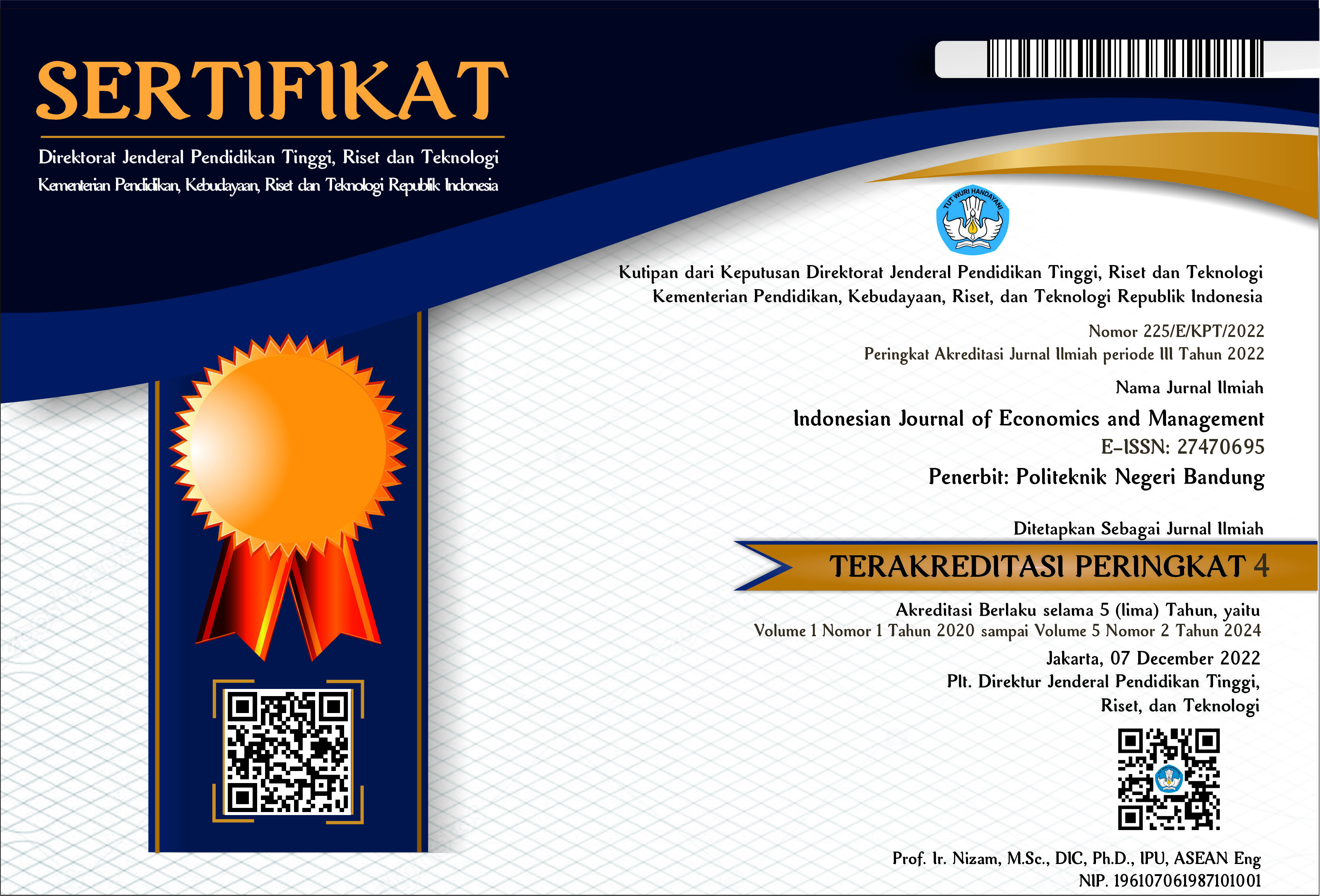Determinan Capital Adequacy Ratio Sebagai Indikator Ketahanan Modal Pada Bank Umum Syariah di Indonesia
Abstract
This study aims to analyze the factors that are likely to influence the determination of the Capital Adequacy Ratio (CAR) in Sharia Commercial Banks (BUS) in Indonesia for the 2014-2018 period. These factors include Non Performing Financing (NPF), Financing to Deposit Ratio (FDR), Return on Assets (ROA) and Operational Income Operating Costs (BOPO). The sample of this study is a Sharia Commercial Bank registered with the Financial Services Authority (OJK) from March 2014 to December 2018. Data is obtained from the Publication Financial Report of each Sharia Commercial Bank through the official website of the Financial Services Authority. The analysis technique used is panel data regression analysis. The results of this study indicate that simultaneously the NPF, FDR, ROA and BOPO variables have a significant effect on CAR. Partially the FDR and ROA variables have a significant effect on CAR, while the NPF and BOPO variables don’t have a significant effect on CAR. The findings of this research contribute to Islamic Commercial Banks in the form of an estimation model that serves as an early warning in order to maintain the CAR as an indicator that can illustrate the capital resilience in covering losses that occur due to risky assets.



